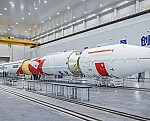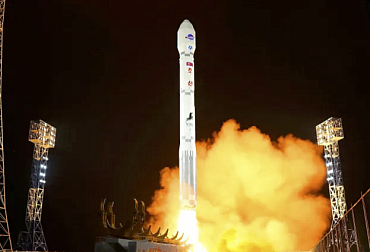The looming threath: Russia’s alleged anti-satellite nuclear ambitions in space
In a revelation that could recalibrate the dynamics of international security and space warfare, U.S. intelligence officials are reportedly concerned about Russia’s aspirations to deploy a nuclear weapon in space. This information, brought to light through various reports, underscores a potential escalation in the militarization of space, posing a “serious national security threat” as described by Rep. Mike Turner, R-Ohio, the chair of the House Intelligence Committee.
Turner’s call for transparency from the White House regarding a “destabilizing foreign military capability” sparked widespread intrigue and concern. Despite efforts to manage the dissemination of details, ABC News uncovered through unnamed sources that the speculated weapon’s primary function would be to incapacitate satellites rather than target the Earth’s surface.
The gravity of the situation prompted National Security Advisor Jake Sullivan to address the matter, highlighting an upcoming meeting with the “Gang of Eight,” which includes congressional leaders and intelligence committee heads. The aim is to deliberate on this critical issue, reflecting the bipartisan urgency underscored by Senate Select Committee on Intelligence leaders Mark Warner, D-Virginia, and Marco Rubio, R-Fla., who have been closely monitoring developments.
This concerning news follows closely on the heels of Russia’s recent launch of a Soyuz-2-1v rocket, carrying a classified military payload, further intensifying speculation about its space ambitions. The U.S. has long been vocal about Russia’s aggressive posture in space, ranging from unconventional satellite maneuvers to kinetic anti-satellite weapons.
The potential deployment of a nuclear weapon in space harks back to historical precedents like the Starfish Prime test in 1962, where a high-altitude nuclear detonation created a geomagnetic storm with far-reaching effects. Such an event today could have catastrophic implications, given the dense constellation of commercial and military satellites that underpin many facets of modern life, from communication to navigation.
The Nuclear Test Ban Treaty of 1963, which followed such tests, underscores the global consensus against the militarization of space and the use of nuclear weapons therein. Yet, the current scenario suggests a possible departure from these principles, highlighting the urgent need for diplomatic engagement and the reinforcement of international treaties to prevent an arms race in space.
As the U.S. military explores countermeasures to protect its space assets, including technologies to mitigate the effects of nuclear blasts in space, the international community faces a pivotal moment. The prospect of nuclear weapons in space is not just a technical challenge but a moral and strategic one, calling for a concerted effort to safeguard the final frontier from becoming an arena for conflict.
The implications of such a development are profound, extending beyond immediate security concerns to the long-term sustainability and peaceful use of outer space. As nations navigate this complex landscape, the priority remains clear: ensuring space remains a domain for exploration and cooperation, not conflict and division.








